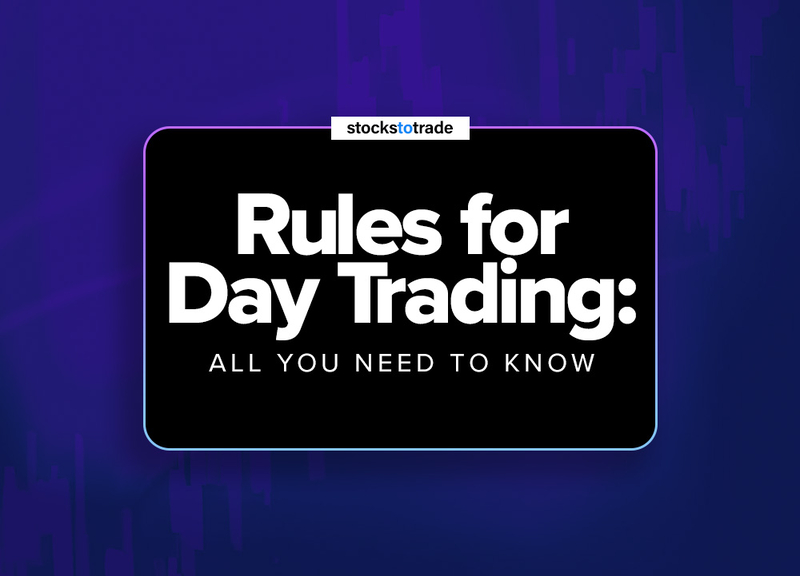Did you know that day trading without understanding regulations is like trying to swim without knowing how to float? In the fast-paced world of day trading, compliance with key regulations is essential for brokers to operate legally and ethically. This article delves into the main regulations that govern day trading brokers, including registration requirements that vary by country, necessary licensing, and the impact of FINRA and SEC regulations in the U.S. We'll also explore compliance standards for client funds, the influence of anti-money laundering laws, and the importance of broker transparency. Additionally, discover how margin and leverage regulations, cybersecurity measures, and fair trading practices shape the industry. Finally, we’ll address reporting obligations, conflicts of interest, penalties for non-compliance, and the role of international regulations and customer dispute resolutions. Join DayTradingBusiness as we navigate these crucial aspects that every trader needs to know.
What are the main regulations for day trading brokers?
Day trading brokers must comply with FINRA and SEC regulations, including registration requirements, capital adequacy rules like the Pattern Day Trader rule with a minimum of $25,000 account balance, and strict supervision standards. They must adhere to anti-money laundering (AML) laws, provide clear disclosure of fees and risks, and implement proper order handling and best execution practices. Brokers also need to follow rules on customer suitability, maintain accurate records, and ensure regulatory reporting.
How do broker registration requirements vary by country?
Broker registration requirements differ widely: some countries demand registration with financial authorities like the SEC in the U.S. or FCA in the UK, while others have minimal oversight. In the U.S., brokers must register as broker-dealers with FINRA, meet capital requirements, and comply with anti-money laundering rules. In the EU, brokers need authorization from national regulators under MiFID II, ensuring transparency and investor protection. Countries like Japan require registration with the Financial Services Agency, with strict licensing standards. Meanwhile, some nations have lax or no specific broker registration laws, increasing risk for traders. Always check local regulations to ensure your broker is properly licensed and compliant.
What licensing do day trading brokers need to operate legally?
Day trading brokers need licenses from financial authorities like the SEC in the U.S., FCA in the UK, or ASIC in Australia. They must register as broker-dealers or investment firms, meet capital requirements, and comply with anti-money laundering rules. Additionally, they need to follow regulations on client fund protection, transparency, and trading practices.
How do FINRA and SEC regulations impact day trading brokers in the US?
FINRA and SEC regulations require US day trading brokers to follow strict rules on client account protections, leverage limits, and reporting. Brokers must ensure proper supervision, disclose risks, and adhere to margin and cash account regulations. They’re also obligated to monitor for manipulative practices and maintain transparent trade reporting. Failure to comply can lead to fines, license revocations, or legal action.
What compliance standards must brokers follow regarding client funds?
Brokers must follow SEC and FINRA rules on client funds, including the Securities Investor Protection Act (SIPA), ensuring segregation of client assets from firm assets. They must comply with the Customer Protection Rule (Rule 15c3-3), which mandates safeguarding client funds and securities. Additionally, brokers need to adhere to Anti-Money Laundering (AML) regulations and maintain accurate records for audits.
How do anti-money laundering laws affect broker operations?
Anti-money laundering laws require brokers to verify client identities, monitor transactions for suspicious activity, and report large or unusual trades. These regulations increase compliance costs and administrative burdens, forcing brokers to implement KYC (Know Your Customer) procedures and AML programs. Failure to comply can lead to hefty fines, license suspension, or criminal charges. Overall, AML laws make brokers more vigilant, aiming to prevent illegal funds from entering the financial system while adding operational complexity.
What are the rules for broker disclosure and transparency?
Brokers must clearly disclose all fees, commissions, and costs upfront. They must provide transparent trading conditions, including order execution policies and potential conflicts of interest. Regulatory rules require brokers to deliver accurate risk disclosures and ensure clients understand the risks involved in day trading. They must also keep detailed records of all trades and communications for compliance and audit purposes.
How do margin and leverage regulations impact day trading brokers?

Margin and leverage regulations limit how much traders can borrow, reducing potential losses and systemic risk. For brokers, these rules mean stricter capital requirements and enforced margin calls, which can slow trading activity. They also restrict the maximum leverage offered, affecting profit potential and client risk exposure. Compliance ensures brokers operate within safe boundaries, preventing excessive risk-taking that could lead to market instability. Overall, these regulations shape broker offerings, risk management, and how aggressively they can facilitate day trading.
What cybersecurity measures are required for broker compliance?
Day trading brokers must implement strong cybersecurity measures like multi-factor authentication, data encryption, regular vulnerability assessments, intrusion detection systems, secure client data storage, and staff training on cybersecurity best practices to meet compliance standards.
How do brokers ensure fair trading practices and prevent market manipulation?
Brokers ensure fair trading and prevent market manipulation by following key regulations like the SEC’s rules, implementing strict order execution standards, monitoring for suspicious activity, and using advanced surveillance systems. They also enforce transparent reporting, adhere to anti-manipulation laws, and maintain compliance with industry best practices to protect traders and uphold market integrity.
What reporting obligations do brokers have under key regulations?
Brokers must report client transactions, including trade details and account activity, to regulators like the SEC or FINRA. They are required to file suspicious activity reports (SARs) if they detect potential fraud or money laundering. Brokers must also maintain records of all transactions and communication for a specified period, often five years. Additionally, they need to disclose any conflicts of interest and ensure clients receive proper trade confirmations and account statements.
How do regulations address conflicts of interest in broker services?
Regulations require brokers to disclose conflicts of interest, implement policies to manage them, and prioritize client interests over their own. They mandate transparency about compensation structures, prohibit insider trading, and enforce strict record-keeping. Regulatory bodies like the SEC and FINRA monitor compliance through audits and enforce penalties for violations.
What are the penalties for non-compliance with trading regulations?
Penalties for non-compliance with trading regulations include hefty fines, trading bans, account suspensions, and legal actions. Regulators like the SEC or FINRA can impose monetary penalties ranging from thousands to millions of dollars. Repeated violations may lead to license revocations or restrictions on trading activities. In severe cases, offenders face criminal charges, potential jail time, or lawsuits. Non-compliance damages reputation and can shut down trading accounts permanently.
How do international regulations influence broker compliance strategies?
International regulations shape broker compliance by setting global standards like MiFID II, which mandate transparency and client protection. Brokers must adapt to diverse rules across jurisdictions, affecting how they handle disclosures, reporting, and risk management. Compliance strategies include implementing robust AML practices, data security measures, and ensuring licensing in multiple regions. Regulatory differences force brokers to tailor their operations, invest in compliance technology, and stay updated on evolving laws to avoid fines and license revocations.
Learn about How Do SEC and FINRA Regulations Influence Day Trading Strategies?
What role do customer complaint and dispute resolution rules play?

Customer complaint and dispute resolution rules ensure brokers handle issues fairly, protect traders’ rights, and maintain trust. They set clear procedures for addressing grievances, prevent unfair practices, and promote transparency. These rules help brokers resolve disputes efficiently, minimizing legal risks and fostering a reliable trading environment.
Conclusion about Key Regulations for Day Trading Broker Compliance
In summary, understanding key regulations is essential for day trading brokers to operate effectively and maintain compliance. These regulations, varying by country, dictate broker registration, licensing, and client fund management, while bodies like FINRA and the SEC ensure adherence to standards that safeguard investors. Compliance with anti-money laundering laws, cybersecurity measures, and fair trading practices is critical in fostering transparency and preventing market manipulation. By staying informed about these regulations, brokers can navigate the complex landscape of day trading more effectively. For deeper insights and guidance on navigating these compliance requirements, DayTradingBusiness is here to assist you.
Learn about How Do Broker Compliance Rules Affect Day Trading Costs and Fees?